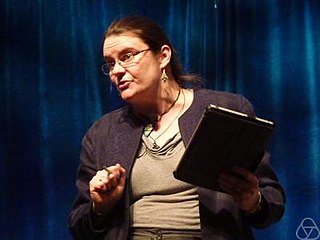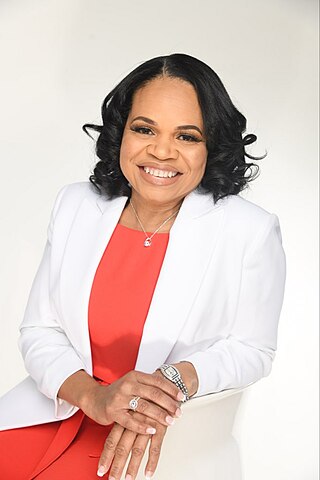Related Research Articles

The Mathematical Association of America (MAA) is a professional society that focuses on mathematics accessible at the undergraduate level. Members include university, college, and high school teachers; graduate and undergraduate students; pure and applied mathematicians; computer scientists; statisticians; and many others in academia, government, business, and industry.
Mathematics, Engineering, Science Achievement (MESA) is an academic preparation program for pre-college, community college and university-level students. Established in 1970 in California, the program provides academic support to students from educationally disadvantaged backgrounds throughout the education pathway so they will excel in math and science and ultimately attain four-year degrees in science, technology, engineering or math (STEM) fields. The program has successfully been replicated in over a dozen other states.
Evelyn Boyd Granville was the second African-American woman to receive a Ph.D. in mathematics from an American university; she earned it in 1949 from Yale University. She graduated from Smith College in 1945. She performed pioneering work in the field of computing.
The Etta Z. Falconer Lecture is an award and lecture series which honors "women who have made distinguished contributions to the mathematical sciences or mathematics education". It is sponsored by the Association for Women in Mathematics and the Mathematical Association of America. The lectures began in 1996 and were named after the mathematician Etta Z. Falconer in 2004 "in memory of Falconer's profound vision and accomplishments in enhancing the movement of minorities and women into scientific careers". The recipient presents the lecture at MathFest each summer.

Jennifer J. Quinn is an American mathematician specializing in combinatorics, and professor of mathematics at the University of Washington Tacoma. She sits on the board of governors of the Mathematical Association of America, and is serving as its president for the years 2021 and 2022. From 2004 to 2008 she was co-editor of Math Horizons.
Sylvia D. Trimble Bozeman is an African American mathematician and Mathematics educator.

Ashanti Johnson is an American geochemist and chemical oceanographer. She is the first African American to earn a doctoral degree in oceanography from Texas A&M University.
Minerva Cordero Braña is a Puerto Rican mathematician and a professor of mathematics at the University of Texas at Arlington. She is also the university's Senior Associate Dean for the College of Science, where she is responsible for the advancement of the research mission of the college. President Biden awarded her the Presidential Award for Excellence in Science, Mathematics, and Engineering Mentoring (PAESMEM) on February 8, 2022.
Erica Nicole Walker is an American mathematician and the Clifford Brewster Upton Professor of Mathematics Education at Teachers College, Columbia University, where she also serves as the Chairperson of the Department of Mathematics, Science, and Technology and as the Director of the Institute for Urban and Minority Education. Walker’s research focuses on the "social and cultural factors as well as educational policies and practices that facilitate mathematics engagement, learning and performance, especially for underserved students".
Camille Althea McKayle is an Afro-Jamaican-American mathematician and is the current Provost of the University of the Virgin Islands (UVI). She holds a PhD in mathematics from Lehigh University and taught undergraduates at Lafayette College and UVI from 1993 to 2008.
Rachel Levy is an American mathematician and blogger. She currently serves as the inaugural Executive Director of the North Carolina State University Data Science Academy. She was a 2020-21 AAAS Science and Technology Policy Fellow, serving in the United States Senate and sponsored by the American Mathematical Society. From 2018-2020 she served as deputy executive director of the Mathematical Association of America(2018-2020). As a faculty member at Harvey Mudd College from 2007-2019 her research was in applied mathematics, including the mathematical modeling of thin films, and the applications of fluid mechanics to biology. This work was funded by The National Science Foundation, Research Corporation, Howard Hughes Medical Institute, and US Office of Naval Research.

Daniel Asua Wubah is a Ghanaian-born American president of Millersville University of Pennsylvania. Prior to that he was the Provost at Washington and Lee University. In his private life, Wubah is a tribal king, Nana Ofosu Peko III, Safohene of Breman Traditional Area in Ghana. He is the first Ghanaian-born president of an American university.
Elena Anne Corie Marchisotto is a mathematician, mathematics educator, and historian of mathematics. She is a professor emeritus of mathematics at California State University, Northridge.
Jean Morrison is an American university academic. She is a professor of earth and environment at Boston University, where, from 2011-2023, she was the university’s provost and chief academic officer - the first woman to be appointed to that role. Prior to joining Boston University, she was executive vice provost for academic affairs and graduate programs at the University of Southern California.
Karen Denise King was an African-American mathematics educator, a program director at National Science Foundation, and a 2012 AWM/MAA Falconer Lecturer.

Gilda A. Barabino is the president of the Olin College of Engineering, where she is also a professor of biomedical and chemical engineering. Previously, she served as the dean of The Grove School of Engineering at the City College of New York, and as a professor in the Departments of Biomedical Engineering and Chemical Engineering and the CUNY School of Medicine. On March 4, 2021, she became the President-Elect of the American Association for the Advancement of Science.
Martha K. Smith is an American mathematician, mathematics educator, professor emerita in the department of mathematics, and associated professor emerita in the department of statistics and data science at the University of Texas at Austin. She made contributions to non-commutative algebra and as well as to mathematics education.
Katherine Puckett Layton is an American mathematics educator and the author of mathematics textbooks.
Demetrius Dante Venable is an American physicist and professor emeritus at Howard University in Washington, D.C. Over his career, he has specialized in optical physics, and is known for establishing and developing physics programs at multiple historically Black universities.
References
- 1 2 "Careers That Count". Association for Women in Mathematics (AWM). Retrieved 2019-03-23.
- ↑ "Cherished Memories". www.iuniverse.com. Retrieved 2019-03-23.
- 1 2 "Sturdy House of Cards The Jacques Sisters of New Orleans Play the Hand That Life Dealt Them". Washington Post. 2006-08-30. Retrieved 2019-03-23.
- ↑ "Shared History - August 2016". The Shoofly Magazine. Retrieved 2019-03-23.
- ↑ Facilitating the Learning of General Abstract Denotative Concepts in Mathematics (PhD). Catholic University of America. 1978. ProQuest 302914059.
- ↑ LinkedIn. "Dr. Anderson's LinkedIn page". LinkedIn. Retrieved 2020-10-01.
- ↑ "CANCER SOCIETY AWARD". Washington Post. Retrieved 2019-03-23.
- 1 2 Anderson, Beverly J. (1990). "Minorities and Mathematics: The New Frontier and Challenge of the Nineties". The Journal of Negro Education. 59 (3): 260–272. doi:10.2307/2295562. JSTOR 2295562.
- ↑ "FOCUS: MAA" (PDF). MAA. Retrieved 23 March 2019.
- ↑ Making Mathematics Work for Minorities: Proceedings of the Region I Workshop. National Academies. 1989. ISBN 978-0-309-31837-2.
- ↑ Mahalingam, Ram; McCarthy, Cameron (2013-10-28). Multicultural Curriculum: New Directions for Social Theory, Practice, and Policy. Routledge. ISBN 9781136052224.
- ↑ Anderson, Beverly J. (1991). Community Colleges: Promises or Preclusions. Washington, D.C.: Distributed by ERIC Clearinghouse.
- ↑ Anderson, Beverly J. (1992). What has been done and what more must be done to recruit minorities in teaching mathematics. [publisher not identified]. OCLC 43536970.
- 1 2 "Three New Appointees Fill Out Prince George's School Board". Laurel, MD Patch. 2013-06-18. Retrieved 2019-03-23.
- ↑ "NASA - NASA GRC News Release 99-36". www.nasa.gov. Retrieved 2019-03-23.
- ↑ Strauss, Valerie (July 2, 1999). "Provost Removed Because National Search Not Done". The Washington Post.
- ↑ Read "Everybody Counts: A Report to the Nation on the Future of Mathematics Education" at NAP.edu . 1989. doi:10.17226/1199. ISBN 978-0-309-03977-2.